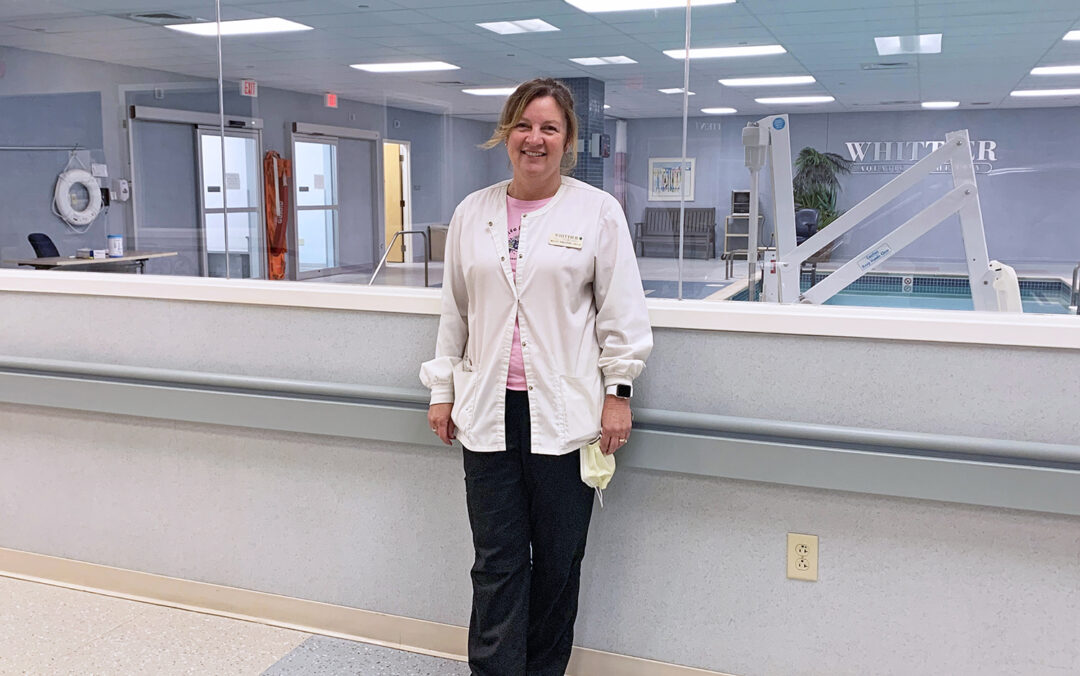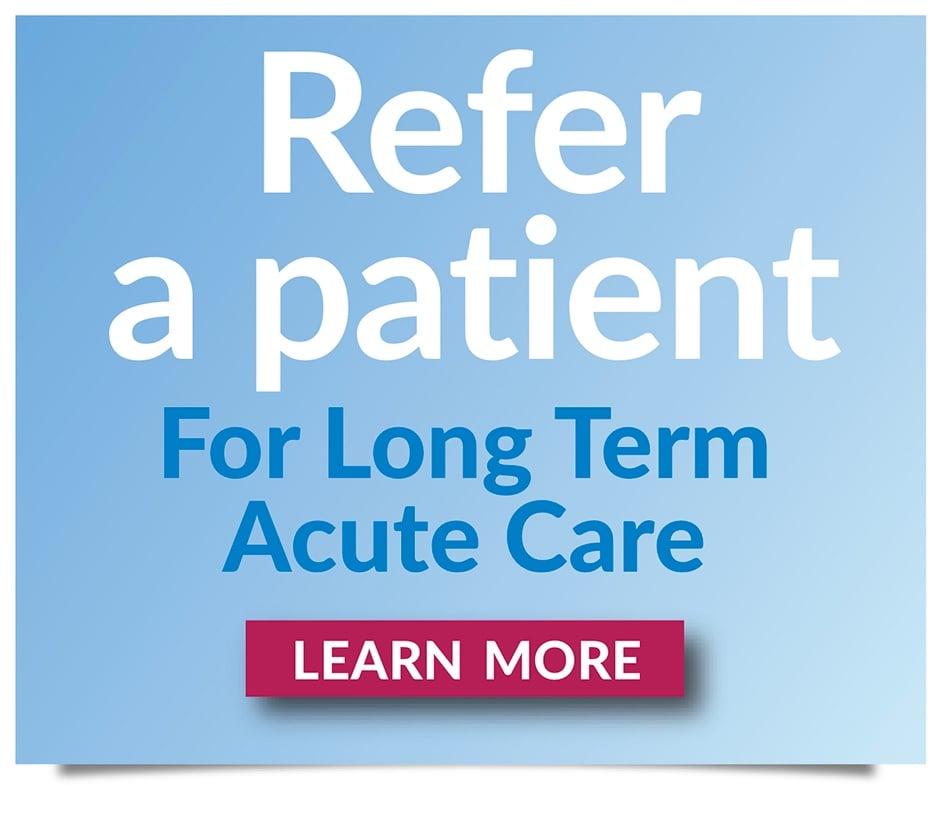As a child, Kelley Porazinski loved medicine but hated needles. “And you can’t be a nurse if you do!” she laughs. “But I wanted to do something in healthcare even then – I just didn’t know what.”
Today, Kelley Porazinski has been with the Whittier Health Network for 26 years as an occupational therapist, starting fresh out of college in 1995. Her first ten years were focused on inpatient care. She primarily focuses on outpatient treatment as part of the neurological day program at Whittier Rehabilitation Hospital Bradford, where “85% of patients recover from strokes.” These people have been referred to Bradford by neuro-psych doctors across Merrimack Valley, as Bradford is the only treatment center in the areas certified by the Joint Commission on Accreditation of Healthcare Organizations (JCAHO).
Whittier also standards out for its extended time sessions with therapy, with an average of 45-60 minutes instead of the standard 30 in most practices. Patients can also visit Bradford for many treatments, with several specialists on-site, instead of traveling to several different locations. Before COVID, there were multiple groups for patients to participate in for recovery: aquatic, yoga, cooking, speech, and more.
Kelley is passionate about the people she works with and regularly goes above and beyond to help. In addition to her full position as an occupational therapist, Kelly performs in-clinic driving assessments, testing gas pedal (or accelerator) and brake reaction time, visual cues, and overall cognitive assessments for stroke and neurological patients. Additionally, Kelly has added Home Care visits to her schedule two days a week: “I did it years ago, and then with COVID, I chose to do it more,” she explains.
Incredibly, Kelley also participates in a Harvard research study every other Friday, testing new technology and therapy products for use with stroke patients. For example, Whittier has had the opportunity to receive a “loaner” sensor glove prototype a full year before market availability, designed to help stroke patients regain function in their hands. Harvard has come to Whittier to perform shoulder and elbow clinical trials, and a leg component is in process.
“We’re the only ones they’ve worked with on a direct basis, without having to go into Harvard itself,” Kelly notes proudly. “We’re the only outpatient clinic that has access to try these new, innovative products for neuro patients.” Two Whittier physical therapists are currently working on becoming official Harvard researchers to participate in studies more completely.
“I love neuro because it’s holistic,” Kelley says. “You work from the cognitive brain stuff to real-life function to get them back to the quality of life. It’s life-changing when you have a stroke. No matter your recovery, it changes your life. Patients need a tremendous amount of support and resources to recover, and I love knowing I can make a difference on such a higher level. I’m very proud that we have such a high percentage of people getting back into the community; to hear about my patients returning to some capacity of work is the biggest success story we have.”
For referrals or more information about Whittier Rehabilitation Hospital Bradford’s services, visit their page on our website.




